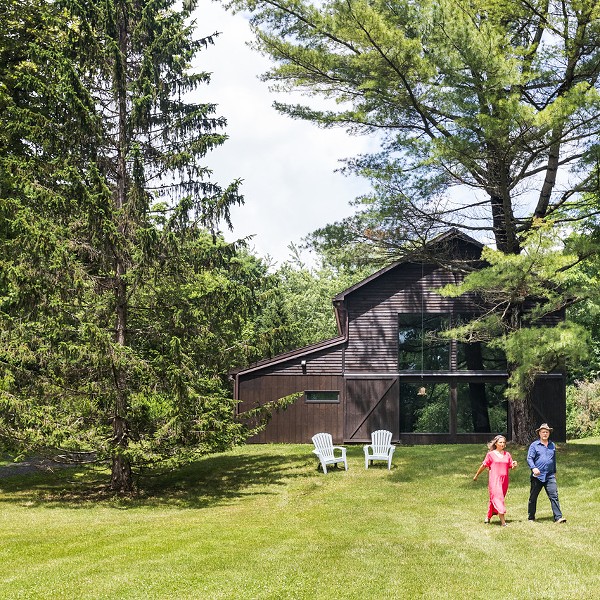Can we really have it all, in terms of a truly sustainable and satisfying lifestyle? In other words, is it really possible to retain a sense of community wherever we live, preserve and restore the local environment and historical character, avoid dependence on distant corporations for local employment and trade, as well as create opportunities for local businesses and meaningful work close to home for individuals? The answer is a hopeful yes, according to advocates of the concept known as Home Town Advantage (HTA). That is, if we begin doing our economic “homework”, so to speak, now.
Developed by the Institute for Local Self-Reliance, HTA promotes solutions for “protect[ing] the character and vitality of your home town.” By developing “homegrown, living economies” characterized by local ownership, green entrepreneurship, social ventures, and sustainable global connections, we can essentially build upon both local values and “local ingenuity to build an economy that we can all live with,” says Melissa Everett, a member of Sustainable Hudson Valley’s economic development working group and a sustainable development PhD candidate at Erasmus University in The Netherlands. Last year Everett began working to bring Home Town Advantage to the Hudson Valley, and moderated an HTA forum panel discussion in November with local entrepreneurs in response to the question, “Where do we hope to go and how do we get there?”
What motivates HTA advocates like Everett and forum participant Ajax Greene, CEO of Visionary Health Concepts and local representative for the New York area chapter of the Business Alliance for Local Living Economies, to explore HTA is their individual personal experience—good and bad—living and working in the community. Greene, a resident of New Paltz, says he’s promoting HTA because “change only comes from talking, even if people don’t agree,” so long as they’re in the same place. “It’s easy to have things not go well in a community if the owners are not around,” he says. “Did anybody at Ames headquarters ever discuss where people in New Paltz would buy stuff when they closed down the store? Now Stop & Shop’s coming. This has nothing to do with what New Paltz needs. Corporations don’t care what’s good or bad for a community. They’re strictly for business.”
In contrast, Greene says, “a number of good things happen when you have locally owned businesses.” He cites Going Local author Michael Shuman’s study of two bookstores—one locally owned, the other a Border’s Books franchise—in Austin, Texas, as examples of how local ownership can go right, and corporate ownership can go wrong, in the same town. “At Border’s, every dollar spent circulates three times in the community and is gone. But the same dollar, spent at a locally owned store, circulates nine times. In both cases, the business owner gets wealthier, but with the local store, community wealth is generated.”
Everett’s arrival in Woodstock in the mid-1990s immediately followed IBM’s downsizing in Ulster and Dutchess counties, and ultimately shaped her career. “Basically, I was the only person I know who ever moved to Woodstock with a full-time job offer,” she recalls. “Since then, I’ve seen too many fabulous people dumbing themselves down to compete for little jobs.” As a vocation counselor, Everett says, she knows firsthand “how much energy is freed up in someone once they find work that does not just give them purchasing power, but makes them part of something. That human energy is a resource to be tapped”—and that’s what Everett says HTA is all about. “I’ve always been fascinated by business as an arena for creativity,” she says. “Yet when I read about these great deals shaping the economy, these huge employers coming in and creating jobs and then going out and leaving people unemployed, it all sounds so arcane to me. Since IBM it seems that there’s been a mounting interest in innovative approaches to the economy—incubator programs, entrepreneurship, youth retention. The economy should be a reflection of the people who live there. Finally companies are starting to look at who our workforce is, and matching opportunities to actual human beings.”
Panel participant Rick Lewandowski is CEO of Direct Global Power, Inc., a solar and renewable energy technology company based in Stone Ridge. He is working to increase the use of solar energy around the world by installing solar lighting systems in Bolivia (under contract with UNICEF) and commercializing a solar coffee-drying technology throughout Latin America, as well as offering green-power to grid-connected Niagara Mohawk customers back home. He follows HTA because it provides “tremendous resources to draw upon within [his] own neighborhood.” He explains, “There are many lessons to be learned within the experiences of those in other industry sectors and even through their personal activities. You never know when or where you will run into just the exact person that can make a project work. It’s quite amazing to work on a project in Bolivia and then find someone [through HTA] who lives a few miles away from you that holds the key to making that project a success. Yet it happens all the time. I am amazed that every time I go to a community event I find world-class professionals, world-class intellects, and most importantly, people who also realize the value in reaching out to those around us for the answers to life’s complex issues.”
In the end, says Lewandowski, it’s what he and other members bring to HTA meetings that makes the biggest difference in his ability to make a difference in the world. “Home Town Advantage, for me, works because I expect it to,” he says. “I look for miracles in each new meeting and usually find them.”
FOR INFORMATION ON DEVELOPING LIVING, LOCAL ECONOMIES,
CHECK OUT THE FOLLOWING RESOURCES:
SUSTAINABLE HUDSON VALLEY (formerly Hudson Valley Sustainable Communities Network) is a network of individuals and organizations from the border of New York City to north of Albany offering creative programs promoting sustainable cities, towns, neighborhoods, and rural areas. For a $20 membership fee, members get free access to the resource center, community forums, a local currency system, cultural and networking events, and project development advice. Contact PO Box 782, Stone Ridge, NY 12484 or e-mail Melissa Everett at [email protected]. www.hvscn.org.
BUSINESS ALLIANCE FOR LOCAL LIVING ECONOMIES, a network of fully independent local businesses, offers an annual national conference (May 20-23 in Philadelphia), one-day workshops, and an information kit ($20). Contact Ajax Greene at [email protected]. www.ballenetwork.org.
THE INSTITUTE FOR LOCAL SELF-RELIANCE features five living economy programs: The New Rules Project, exploring mobility, scale, and trade for communities (including the Home Town Advantage project and free e-bulletin); Carbohydrate Economy Clearinghouse; Waste to Wealth with reuse, recycling, and scrap-based manufacturing with building deconstruction; Sustainable Minnesota energy project; and Healthy Building Network, for environmentally sustainable building. www.ilsr.org.
THE E.F. SCHUMACHER SOCIETY, named for the author of Small Is Beautiful: Economics As If People Mattered, is an educational nonprofit organization founded in 1980 offering programs in decentralism (returning to human-scale communities), community revitalization, and social, economic, and ecological sustainability, as well as an online resource library. Visit EFSS at 140 Jug End Road, Great Barrington, MA 01230; call (413) 528-1737; or e-mail [email protected]. www.schumachersociety.org.
GOING LOCAL: CREATING SELF-RELIANT COMMUNITIES IN A GLOBAL AGE (Free Press, 1998), by attorney and progressive economist Michael Shuman, is the HTA bible, citing studies of the impacts of local- vs. corporate-owned businesses on various communities.

















